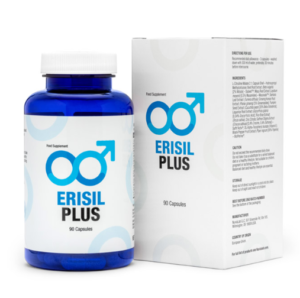Introduction
Varicocele is a common condition affecting many men, with significant impacts on fertility. Often likened to varicose veins, varicocele involves the enlargement of veins within the scrotum, which can disrupt normal sperm production. This article delves into how varicocele affects fertility, the available treatment options, and actionable steps you can take to improve reproductive health.
Table of Contents
What is a Varicocele?
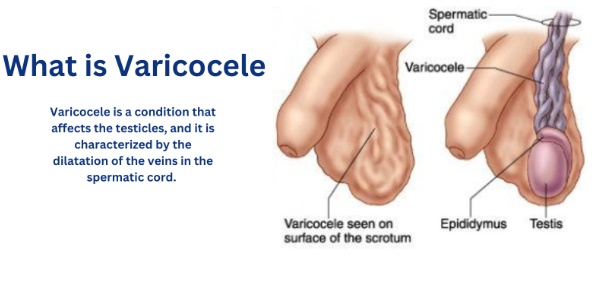
A varicocele refers to the dilation of veins within the scrotum, specifically in the pampiniform plexus. This condition develops due to malfunctioning valves within these veins, leading to blood pooling, which raises the temperature of the testicles and hampers sperm production.
How Varicocele Affects Fertility
Varicoceles can elevate testicular temperature, which is essential in maintaining healthy sperm production. When blood flow within the scrotum is compromised, the temperature rises, which can impair sperm motility, morphology, and count.
Signs and Symptoms of Varicocele
Varicocele symptoms may vary. Common indicators include a dull ache in the scrotum, a feeling of heaviness, and visibly enlarged veins in the scrotal area. However, some men may experience no symptoms and only discover the condition during a fertility evaluation.
Diagnosis of Varicocele
Doctors typically diagnose varicocele through a physical examination, ultrasound, or Doppler scan to assess vein enlargement and blood flow. For men experiencing infertility, semen analysis may also be performed to identify abnormalities in sperm.
Types of Varicocele
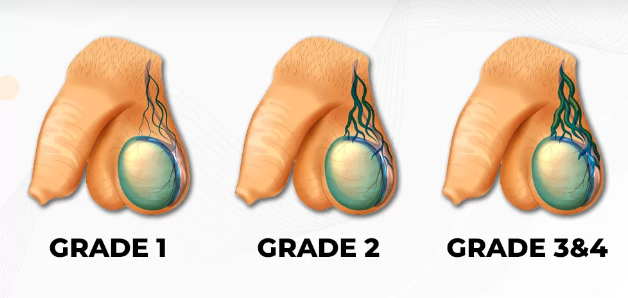
Varicoceles are categorized into three grades based on severity:
- Grade 1: Minimal and detectable only with Valsalva maneuver.
- Grade 2: Moderately enlarged veins, noticeable without Valsalva maneuver.
- Grade 3: Visible and easily noticeable veins.
Common Risk Factors
Certain risk factors may increase the likelihood of developing a varicocele, including:
- Genetics: Family history can play a role in the development.
- Age: Varicoceles are more common in adolescents and young men.
- Physical Activity: Strenuous activities may exacerbate varicocele symptoms.
Treatment Options for Varicocele
Treatment options for varicocele include:
- Surgical Treatments: Varicocelectomy, a procedure to seal off the affected veins.
- Non-Surgical Treatments: Embolization, a less invasive technique that blocks the problematic veins.
Lifestyle Changes to Manage Varicocele
Making lifestyle adjustments can help mitigate symptoms and support fertility. Some effective changes include:
- Regular Exercise: Moderate activity improves blood flow.
- Avoiding Tight Clothing: Looser clothing may reduce discomfort.
- Dietary Adjustments: Antioxidant-rich foods support reproductive health.
The Role of Surgery in Varicocele Management
Surgery can be highly effective in managing varicocele symptoms. Varicocelectomy often yields favorable outcomes, including improved sperm quality, though results can vary based on individual factors.
Varicocele and Male Fertility
Sperm abnormalities, such as reduced motility and increased DNA fragmentation, are often associated with varicoceles. Research indicates that treating varicocele may enhance fertility outcomes, particularly in couples experiencing infertility.
Natural Remedies and Lifestyle Adjustments
Natural approaches, such as herbal supplements, stress reduction, and a healthy diet, can complement medical treatment, though they should not replace professional medical advice.
Impact of Varicocele on Female Partner's Fertility
While varicocele is a male condition, its impact on fertility indirectly affects a couple’s reproductive success, potentially prolonging the time to conceive.
Studies show that treating varicocele can improve sperm parameters in some men, with varicocelectomy being one of the most studied and effective treatments for this condition.
Research and Case Studies on Varicocele and Fertility
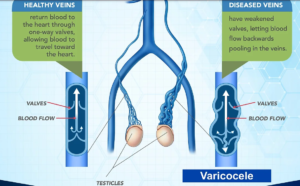
Varicocele Prevention and Future Outlook
Prevention strategies for varicocele include maintaining a healthy weight, engaging in regular physical activity, and avoiding excessive heat exposure to the testicles. Ongoing research is looking into more refined surgical techniques and non-invasive treatments to offer better outcomes for those affected.
Psychological Impact of Varicocele on Men
Varicocele isn’t just a physical condition; it can also take a psychological toll. Men dealing with varicocele, especially when it affects fertility, may experience stress, anxiety, and self-esteem issues. Infertility challenges often create emotional strain and may even impact relationships. Addressing both the physical and emotional aspects of varicocele is essential for comprehensive well-being.
Open discussions with a healthcare provider, counseling, or support groups can provide emotional support and help men navigate these feelings. Awareness and mental health support play a critical role in helping individuals cope with the diagnosis and its implications.
Diet and Supplements for Managing Varicocele Symptoms
A balanced diet rich in antioxidants can support reproductive health and potentially ease varicocele symptoms. Antioxidants such as vitamin C, vitamin E, and zinc may help reduce oxidative stress, which is beneficial for sperm health. Foods high in omega-3 fatty acids, like fish and flaxseeds, support circulation, while leafy greens, berries, and nuts offer vitamins that can help with inflammation and cellular repair.
Some men consider supplements like Coenzyme Q10 (CoQ10) and L-carnitine for improved sperm quality, though these should be used under medical advice to ensure safety and efficacy.
Exercise and Its Benefits for Varicocele
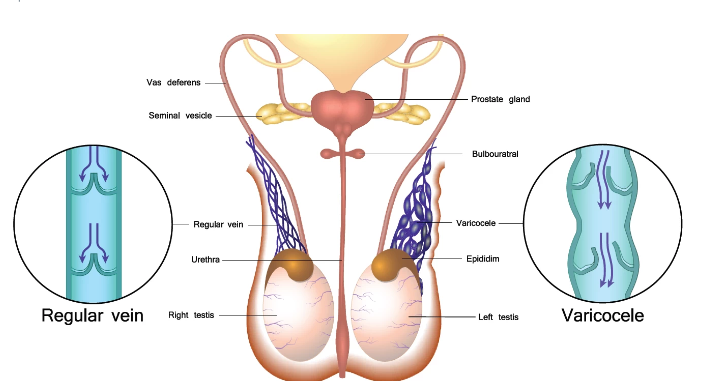
Engaging in moderate exercise can have a positive impact on varicocele symptoms. Physical activity improves blood flow, reduces inflammation, and enhances overall reproductive health. However, intense or prolonged activities, such as heavy weightlifting, may worsen symptoms by increasing pressure within the abdominal region. It’s best to opt for exercises that focus on cardiovascular health, flexibility, and strength without excessive strain on the lower abdomen.
Fertility Options for Men with Untreated Varicocele
For men with untreated or unresponsive varicocele who still want to conceive, assisted reproductive technologies (ART) like intrauterine insemination (IUI) or in vitro fertilization (IVF) may offer solutions. These techniques help bypass natural limitations by placing healthy sperm directly in contact with the egg or facilitating fertilization in a lab setting. However, ART procedures can be costly and are generally considered after evaluating all treatment options.
Varicocele in Adolescents: Early Detection and Management
Varicocele is often detected during adolescence, typically around puberty. Early detection is essential, as untreated varicocele in adolescents can affect testicular growth and future fertility. Routine check-ups and physical examinations during adolescence can help in identifying varicocele early on, allowing for timely management and reducing the risk of complications.
In some cases, observation may be recommended until symptoms warrant intervention. Parents and adolescents should discuss any concerns with healthcare providers to understand the best approach.
Long-Term Prognosis and Success Rates of Treatment
The prognosis for men with varicocele can be favorable, especially when appropriate treatment is undertaken. Studies have shown that men undergoing varicocelectomy often experience improvements in sperm quality and a reduction in fertility challenges. However, results can vary based on the individual’s overall health, age, and severity of varicocele. Success rates of surgical treatment in improving fertility range from 30-50% in cases with abnormal sperm parameters, though these rates can fluctuate.
Common Misconceptions about Varicocele and Fertility
There are several misconceptions about varicocele and its impact on fertility. Some believe varicocele always causes infertility, while others may think it only affects older men. In reality, varicocele’s effect on fertility is highly individual, and the condition can affect men of all ages. Additionally, not all men with varicocele experience fertility issues, as the condition’s impact on sperm quality and production varies widely.
Education and consulting with a healthcare provider can clarify these misconceptions and guide patients to the right treatments.
When to Consult a Specialist for Varicocele
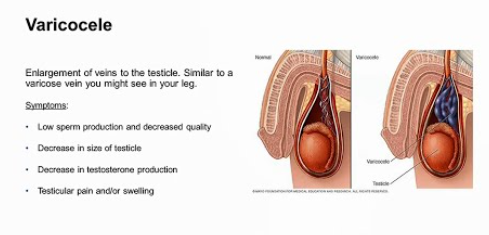
While some men may experience no symptoms with a varicocele, it’s advisable to consult a specialist if:
- Fertility challenges arise without an apparent cause.
- Pain or discomfort becomes a concern.
- Physical changes, such as visible scrotal swelling, are noted.
Urologists, who specialize in male reproductive health, can assess varicocele severity and recommend appropriate tests and treatments. Early consultation ensures timely care and reduces the risk of potential fertility complications.
Conclusion
Varicocele is a condition that can have a significant impact on male fertility. Understanding its effects, recognizing symptoms early, and seeking appropriate treatment can improve outcomes for many men facing fertility challenges. With advances in treatment options and ongoing research, there is hope for improved fertility and quality of life for men with varicocele. Prioritizing both physical and mental health, consulting with specialists, and making lifestyle adjustments can empower men to manage varicocele effectively.
FAQ’s
A varicocele is an enlargement of veins within the scrotum that affects testicular temperature and sperm quality.
By raising testicular temperature, varicocele can reduce sperm production and quality, impacting male fertility.
In most cases, varicocele does not resolve without treatment but may not require intervention if symptoms are mild.
Treatments include varicocelectomy, embolization, and lifestyle changes, depending on severity and symptoms.
Diagnosis involves a physical exam, ultrasound, and sometimes semen analysis to check for sperm quality issues.
Varicoceles can cause a dull ache, especially after long periods of standing or physical exertion.
Regular exercise, a balanced diet, and wearing loose clothing can help reduce discomfort.
No, non-surgical options like embolization are available, though surgery may be recommended for severe cases.
While not entirely preventable, healthy lifestyle habits may reduce risk factors.
Many men experience improvements in sperm quality and fertility post-treatment, though results vary.
Varicocele surgery, such as varicocelectomy, is typically performed under anesthesia, so patients do not feel pain during the procedure. Post-surgery pain is generally manageable and temporary.
While varicocele primarily affects sperm production, some studies suggest it may contribute to reduced testosterone levels, especially in severe cases.
Yes, lifestyle changes, natural supplements, and ART options may help improve fertility, although results vary from person to person.
Recovery usually takes 1-2 weeks, with most patients able to return to normal activities within that timeframe. Complete recovery, including improved fertility outcomes, can take several months.
Recurrence is possible but relatively rare. Surgical techniques and follow-up care are designed to minimize the risk of recurrence.
Varicocele primarily impacts reproductive health, but in rare cases, it may be associated with lower testosterone levels or cause pain.
Healthy dietary habits, regular exercise, and avoiding excessive heat exposure to the testicles may support recovery and overall reproductive health.
Varicocele primarily impacts sperm production and fertility, with minimal evidence linking it directly to erectile dysfunction.
Improvements in sperm quality, count, and motility are indicators. Routine semen analysis post-surgery can provide measurable results.
Adolescents with untreated varicocele may experience future fertility complications. Regular monitoring and, if necessary, early intervention can help safeguard reproductive health.

10 Proven Benefits of Bananas for Health and Well-being
Bananas are known for their natural sweetness, ease of peeling and rich nutrition. This makes them one of the most commonly consumed fruits in the world. Though bananas originated in Southeast Asia, they are now
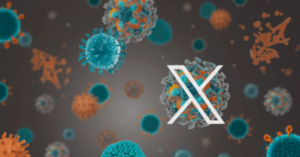
Disease X: The Next Pandemic?
Emerging infectious diseases pose one of the greatest threats to human health and global stability. One of them, “Disease X” has intrigued scientists and WHO, as it represents the potential for an unknown disease to

The Remarkable Benefits of Eating Acorn Squash in Winter
Acorn squash has all the qualities that make it special. Winter calls for warmth, comfort, and nutrition, and acorn squash provides all of these. This vegetable is not just delicious but also has a lot

Omega-3 Fatty Acids
Omega-3 fatty acids play a very important role in the nutrients needed to maintain overall health. As people are getting to know about it, its popularity is increasing day-by-day. These fats play a very important
